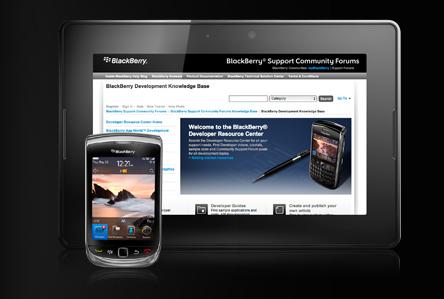RIM PlayBook BlackBerry Tablet

RIM’s PlayBook tablet is a good effort, if you have a BlackBerry phone and don’t need many apps
The BlackBerry PlayBook tablet is facing an uphill struggle, and analyst Gartner has predicted it will lose. However, Research In Motion has a lot invested in the project, which will have impact across its product range.
The proprietary QNX operating system on the PlayBook will eventually power the company’s smartphones, and RIM hopes the BlackBerry-branded tablet will establish a robust presence in a market currently dominated by Apple’s iPad. The Playbook was launched in September 2010, and its delivery date was reportedly delayed because of the iPad.
eWEEK Europe had a demonstration of the Playbook at the Mobile World Congress (MWC), and eWEEK played with one at CES in January.
More similar to Android tablets?
 At first glance the PlayBook has more in common with other tablets on the market, particularly the Samsung Galaxy Tab and Dell Streak 7, than Apple’s blockbuster device.
At first glance the PlayBook has more in common with other tablets on the market, particularly the Samsung Galaxy Tab and Dell Streak 7, than Apple’s blockbuster device.
Like the Tab and Streak, the PlayBook boasts a 7-inch capacitive touch screen, along with front- and rear-facing cameras for video chatting. The rubberised backing provides a little more friction (at least in theory) on smoother surfaces. The battery life – cited as an early problem with the PlayBook – is advertised in the neighborhood of 8 to 10 hours, roughly in line with other tablets on the market.
Like some early Android devices, though, the PlayBook feels a bit like a work in progress. Activated for the first time, eWEEK’s review unit immediately began downloading and installing a 295MB software update, something also experienced by other early reviewers. This hints that RIM is continuing to tweak various aspects of the operating system ahead of the tablet’s official April release date.
The PlayBook also wants to know from the outset whether you own a BlackBerry, so it can set up the BlackBerry Bridge tethering feature. RIM likely expects the Bridge to help sell the PlayBook to those businesses that want tablets and already rely on the BlackBerry for their mobile-communications needs.